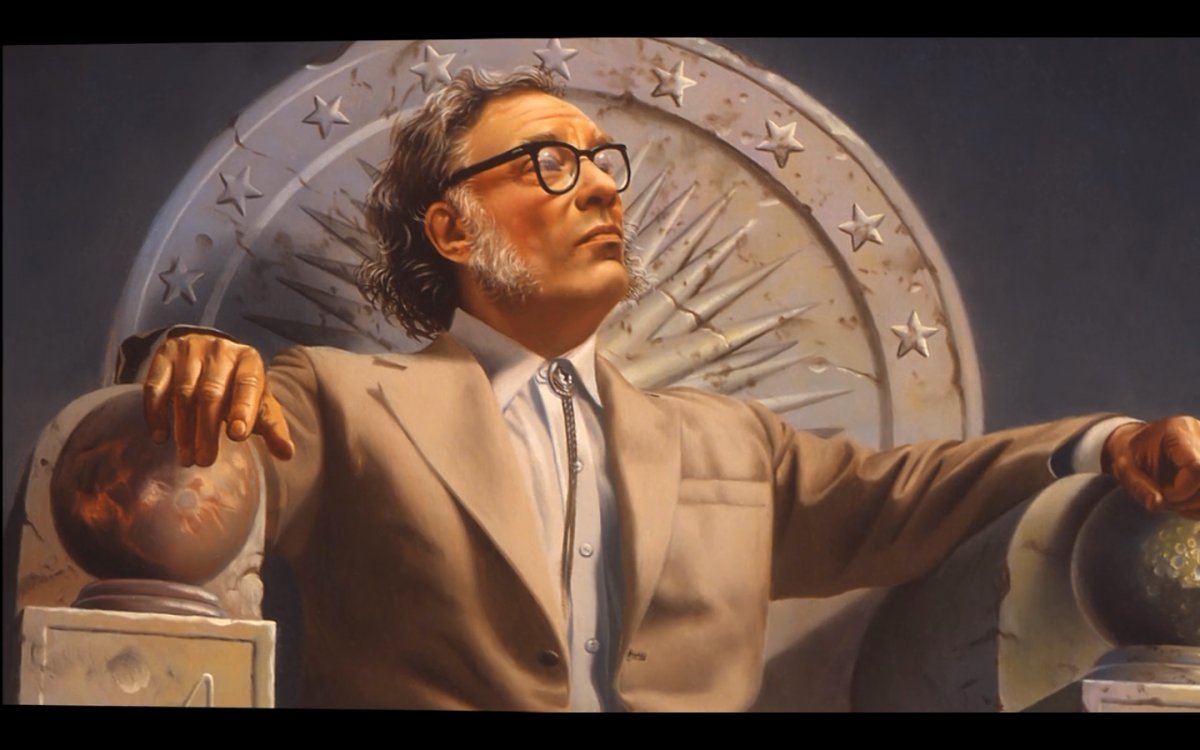When I think about lawgivers in a sci-fi context, I don’t think first of a fictional character, but of a real science fiction author. One of Isaac Asimov’s enduring legacies is his formulation of the Three Laws of Robotics.
Since Asimov introduced them over seven decades ago, his Three Laws have become firmly ensconced in science fiction. Their apparent self-evidence, self-consistency, and elegant simplicity have compelled numerous other authors and filmmakers to acknowledge them.
But Asimov didn’t write stories in which robots follow the Three Laws flawlessly. Where would the fun be in that? His classic short story collection I, Robot (1950) rings change after unexpected change on the Three Laws. New situations cause robots to run up against the Laws’ hidden but inherent ambiguities and contradictions, often leading to erratic behavior and unforeseen consequences.
Less seriously, but in the same spirit, this animated short features a robot looking for loopholes in the Laws:
Even DC’s Metal Men get in on the action:
If science fictional robots struggle to follow the rules programmed into their positronic brains, how much more do real human beings struggle to follow God’s Law?
In my experience, most Christians don’t think about Jesus as a lawgiver. I know I focus on Jesus’ mercy and grace—the “rebel” willing to break Sabbath law in order to restore people’s health and wholeness; the teacher who challenges the religious authorities’ overzealous application of the law by inviting those who are without sin to cast the first stone.
But Jesus also said, “Do not think that I have come to abolish the law or the prophets; I have come not to abolish but to fulfill” (Matthew 5.17). While we are no longer condemned by God’s law, we are also not excused from its demands. How are we to be holy and perfect, as our Father in heaven is holy and perfect (Matthew 5.48; 1 Peter 1.16), if we ignore the instruction (which is what the Hebrew word torah means) God has given? Keeping the law does not make us righteous, but forgetting or flaunting it is surely unrighteous behavior.
Jesus was obedient, in our place and for our sake, to God’s Law. But he also came to write God’s Law within our hearts and minds (Hebrews 10.16)—not to program us like robots, but to transform us into God’s grateful, joyful, and obedient children.
O Adonai,
Ruler of the House of Israel,
You appeared in the burning bush to Moses,
and gave him the law on Sinai:
Come with outstretched arm to save us.
Come, Lord Jesus!
Scripture quotations from the New Revised Standard Version. Antiphon texts from Book of Common Worship, © 1993 Westminster/John Knox Press. Featured image on SFC home page: Rowena Morrill‘s portrait of Asimov enthroned with symbols of his life’s work (found at http://www.businessinsider.com/isaac-asimov-robot-predictions-2013-12?op=1)


Leave a Reply